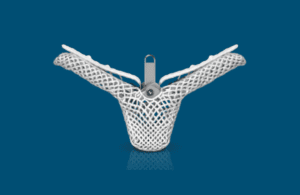
Abbott (NYSE:ABT) today announced post-approval study results supporting its MitraClip G4 system for treating mitral regurgitation (MR).
The company presented data from the EXPAND G4 study at the 34th Transcatheter Cardiovascular Therapeutics (TCT) annual scientific symposium of the Cardiovascular Research Foundation in Boston. EXPAND G4 evaluated MitraClip G4, the company’s transcatheter edge-to-edge repair (TEER) device for treating leaky valves in people with MR.
EXPAND G4 data support the safety and effectiveness of MitraClip G4. Abbott said in a news release that the study represents the largest report of 30-day core lab-assessed outcomes. Data from more than 1,000 patients confirm that MitraClip offers high success rates in terms of MR reduction. It also demonstrated improvements in quality of life and low adverse event rates.
Through 30 days, MitraClip achieved significant MR reduction to “mild or less” in 91% of patients. It also demonstrated its lowest reported adverse event rates to date, with 1.3% all-cause mortality at 30 days.
Abbott said that 83% of patients achieved New York Heart Association (NYHA) Functional Class I/II. That means slight or no limitation of physical activity. That represents an improvement of 52 percentage points from a baseline of 31%. The company also saw an 18-point improvement in the Kansas City Cardiomyopathy Questionnaire (KCCQ) score.
The study found that multiple clip sizes for MitraClip enable the tailoring of therapy to patient anatomy. It also expands the spectrum of TEER-suitable patients. Additionally, the use of MitraClip G4 improved procedural efficiency with fewer clips and a 24% reduction in device time.
MitraClip demonstrates value, doctor says
“MitraClip therapy has fundamentally changed the way doctors treat mitral regurgitation, provides a valuable therapy option that does not require open-heart surgery, and goes beyond simply managing symptoms with medications,” said Dr. Jason Rogers, professor of cardiovascular medicine and director of interventional cardiology and structural heart training programs at the University of California, Davis Medical Center. “These late-breaking data demonstrate and strengthen the evidence that Abbott’s MitraClip system consistently reduces MR in a broad range of patients while restoring proper function of the mitral valve and improving patients’ quality of life.”
MitraClip has been commercially available in the U.S. since 2013, plus in Europe since 2008. It is approved in more than 75 countries.
“These results add to what’s been proven through nearly two decades of clinical experience in transcatheter mitral repair — MitraClip provides long-term, significant mitral regurgitation reduction that changes and saves lives,” said Michael Dale, SVP of Abbott’s structural heart business. “Abbott was the first to offer a transcatheter mitral valve repair device that provides a minimally invasive treatment option for patients with MR who would otherwise go untreated, and we remain committed to addressing the unmet needs of people with structural heart conditions.”
Competitor close behind?
Edwards Lifesciences (NYSE:EW) is also presenting data for its TEER device at TCT. The Pascal Precision system for patients with degenerative mitral regurgitation (DMR) received FDA approval earlier this week.
The study directly compares two contemporary TEER therapies. Truist analysts said it is possible that some of the data or analysis in the pivotal trial results could yield insights on how Pascal Precision compares with MitraClip.